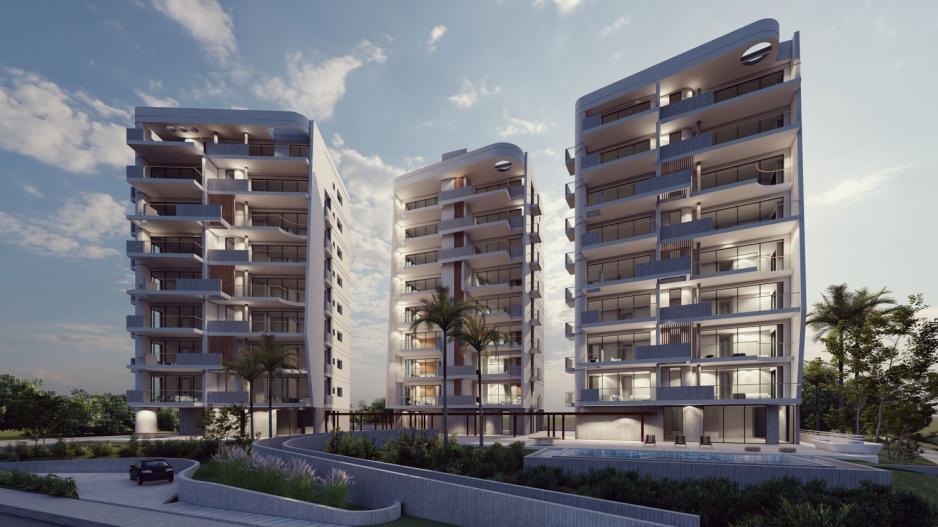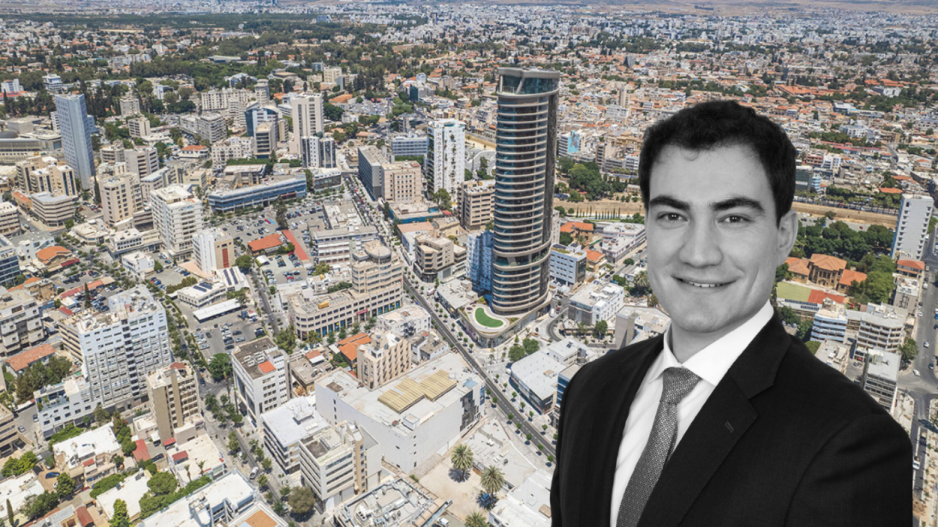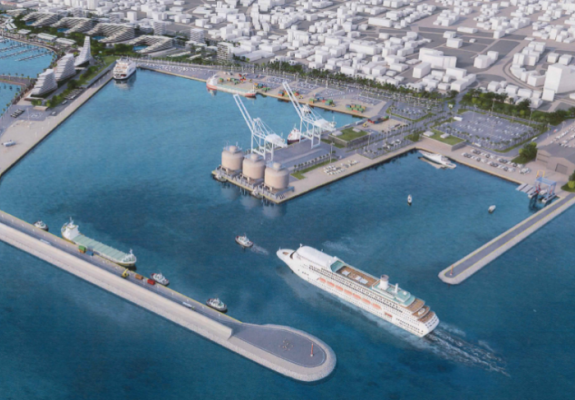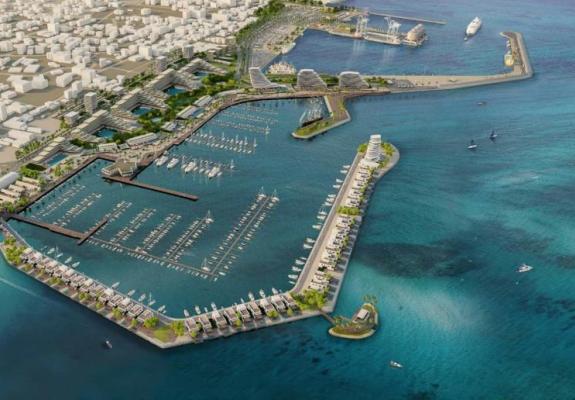Shaping Nicosia's Skyline
An Interview with George Chrysochos, Executive Director of Cyfield
Cyfield, founded in 1990, initially focused on real estate development and construction. Through gradual growth and strategic evolution, it emerged as a leading developer and contractor, specializing in selective residential and commercial projects. Today, Cyfield continues to grow as one of the largest construction companies in Cyprus, with a robust portfolio, technical proficiency, and financial stability.
In an exclusive interview with FFWD, George Chrysochos, Executive Director of Cyfield, shares insights into the cultural significance of Cyfield's mega-projects—the iconic 360 building and the upcoming tower in Stasikratous street—and their impact on Nicosia's transition into a dynamic capital city.
The interview explores the trend of re-urbanization, the challenges Nicosia's urban landscape presents, and how Cyfield balances preserving the city's heritage with modern development. Mr. Chrysochos discusses the importance of sustainability in their high-rise projects and their plans to accommodate tech companies, while ensuring a balance between living costs, affordability, and quality of life for residents. The conversation also touches on the topic of gentrification and the need for inclusive urban planning and cultural preservation.

Indeed, the 360 and the upcoming tower in Stasikratous street hold cultural significance and signal Nicosia's transition into a dynamic capital city. These mega-projects showcase architectural innovation and modernization, symbolizing the city's progress and forward-thinking approach. The 360's distinctive circular design has already become an iconic landmark, while the Stasikratous Residences tower signifies Nicosia's vertical expansion and urban densification. Both projects contribute to the city's cultural fabric by creating vibrant communities with mixed-use spaces for residential, commercial, and recreational activities.
Until now, the housing culture in Cyprus has predominantly focused on villas in the suburbs with large gardens and swimming pools. However, there is a new trend emerging, following the lead of major international cities, towards re-urbanization. Younger generations are increasingly drawn to the city center, seeking the amenities and lifestyle it offers. These mega-projects attract attention from both local and international audiences, indicating Nicosia's growing real estate market and its potential for economic growth. The construction of these buildings is shaping Nicosia's future as a vibrant and cosmopolitan destination.
Moreover, our company, as a strong believer in modernization, is launching two additional high-rise buildings. One of them will also be located on Stasikratous street, further contributing to the urban transformation of the area. The other high-rise building will be situated across from the old GSP park, creating a new landmark in that part of the city. These new projects aim to meet the demand for contemporary urban living spaces and contribute to the overall development and growth of Nicosia as a modern capital city.
Nicosia faces unique challenges compared to Limassol, particularly in terms of its urban landscape and historical heritage. Nicosia boasts a rich historical heritage, with a fortified old town and cultural landmarks. It is crucial to ensure that the new High Rise buildings harmoniously coexist with the existing architectural and cultural fabric, maintaining the city's unique identity.
Another challenge specific to Nicosia is its divided nature, with the green line encircling the city on three sides. This means that the only point of entry and exit from the city is through the southern part. Consequently, upgrading and expanding the urban infrastructure becomes essential to support the increased density and population associated with high-rise buildings. Addressing issues such as traffic congestion, improving public transportation, and ensuring sufficient utilities to accommodate vertical growth will be crucial considerations in the city's development plans.
In contrast, Limassol does not face the same challenges as Nicosia, as it lacks a designated downtown area (despite the existence of the Old Town) and does not have a single point of entry.
We strive to create buildings that seamlessly blend into the existing architectural fabric
Cyfield, a leading real estate developer in Cyprus, skillfully balances the preservation of Nicosia's heritage with the need for modern development. The company approaches this delicate task with careful consideration and strategic planning.
The company places a strong emphasis on architectural designs that respect and harmonize with Nicosia's historical context. Working closely with architects, the Planning Authority and the municipality of Nicosia, we strive to create buildings that seamlessly blend into the existing architectural fabric. This entails using appropriate materials, colors, and architectural elements that complement the surrounding historical structures.
Additionally, Cyfield actively engages in public consultations, seeking input from the community, and often advises the planning authorities and the municipality of Nicosia. By valuing diverse perspectives, we incorporate valuable insights into the development process.
Sustainability plays a crucial role in Cyfield's business operations and our approach to new high-rise projects in Nicosia. The company is committed to incorporating principles of sustainable development throughout our construction and design processes.
To ensure alignment with sustainable development principles, we employ several strategies. We prioritize energy efficiency in our buildings by utilizing sustainable materials, implementing insulation techniques, and integrating energy-saving technologies such as efficient lighting systems and renewable energy sources.
Additionally, we consider the social aspect of sustainability by creating healthy and livable spaces. We prioritize indoor air quality, natural lighting, and green spaces to enhance the well-being of residents and promote a sustainable lifestyle.
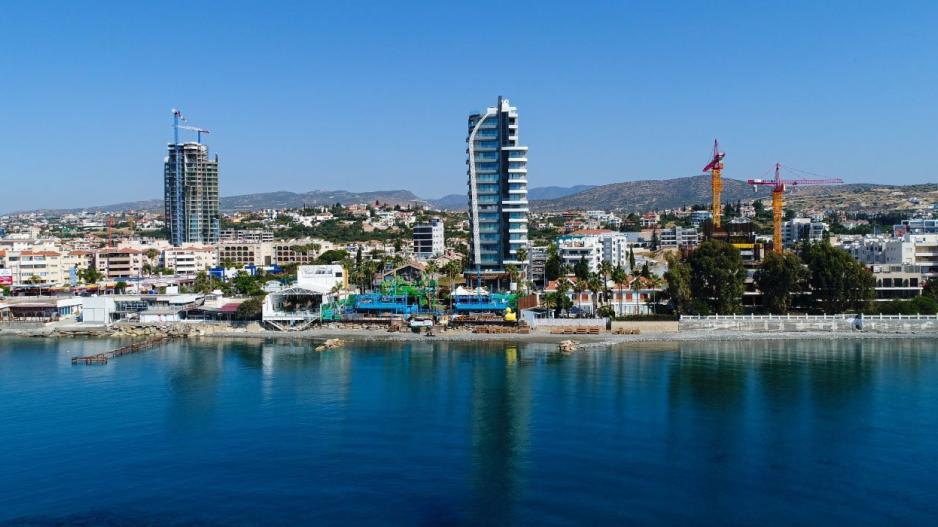
We aim to strike a balance and cater to the needs of a wide range of individuals and families
Cyfield has strategic plans to accommodate tech companies in Nicosia and elevate the standard of living through their high-rise developments. With a focus on providing modern office spaces, Cyfield aims to foster a thriving business ecosystem that promotes economic growth and technological advancement in the city. Common lounge areas within these high-rise buildings, such as the 360 and Stasikratous Residences, offer opportunities for remote work, while additional facilities cater to relaxation and rejuvenation after work hours.
While high-rise developments can have both positive and negative impacts on living costs, Cyfield acknowledges the importance of maintaining a balance. While these developments may increase housing supply and improve affordability in some cases, they can also result in higher construction and maintenance costs. To ensure inclusivity, Cyfield offers diverse housing options, including more affordable and conventional housing choices, as we aim to strike a balance and cater to the needs of a wide range of individuals and families, including those working in the tech industry.
Gentrification is a significant issue in Cyprus' cities, paralleling debates in other European capitals. While urban revitalization can bring positive changes, it also raises concerns about displacement and cultural shifts. To address this, comprehensive urban planning is necessary, including affordable housing initiatives, mixed-income neighborhoods, cultural preservation, and community participation. Striking a balance is crucial to promote sustainable growth while maintaining inclusivity and preserving the unique character of Cyprus' cities.
The Nicosia Municipality has devised various plans and subsidies to encourage investment in the old town and to attract residents to abandoned and dilapidated areas. To achieve rejuvenation, it is crucial for Nicosia to incentivize and promote residential permits in old industrial areas like Paliouriotissa and Kaimakli. However, the presence of the green line dividing the old town poses a significant obstacle. A viable solution to the Cyprus problem would undoubtedly contribute to the process of gentrification and revitalization in Nicosia.
